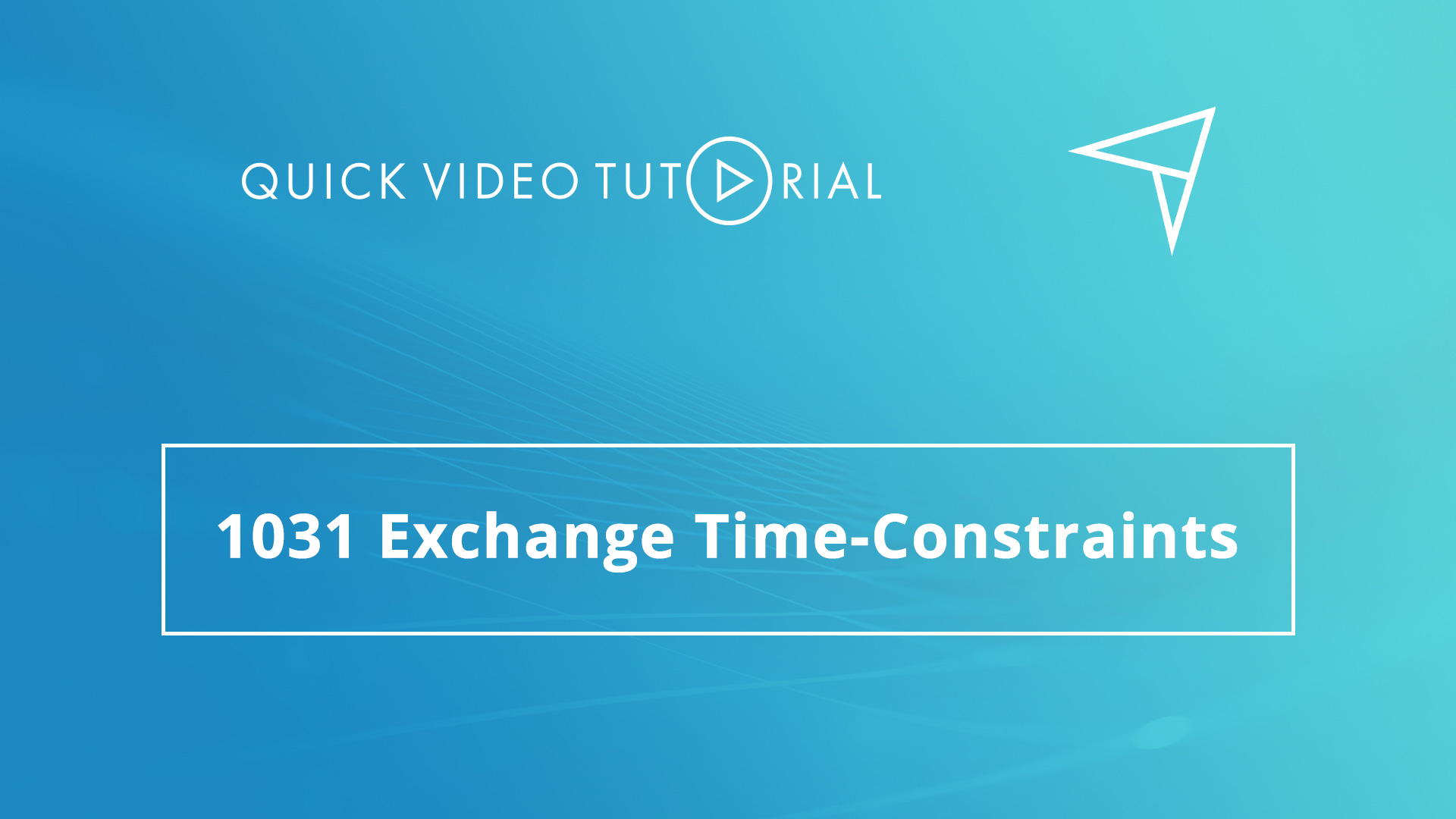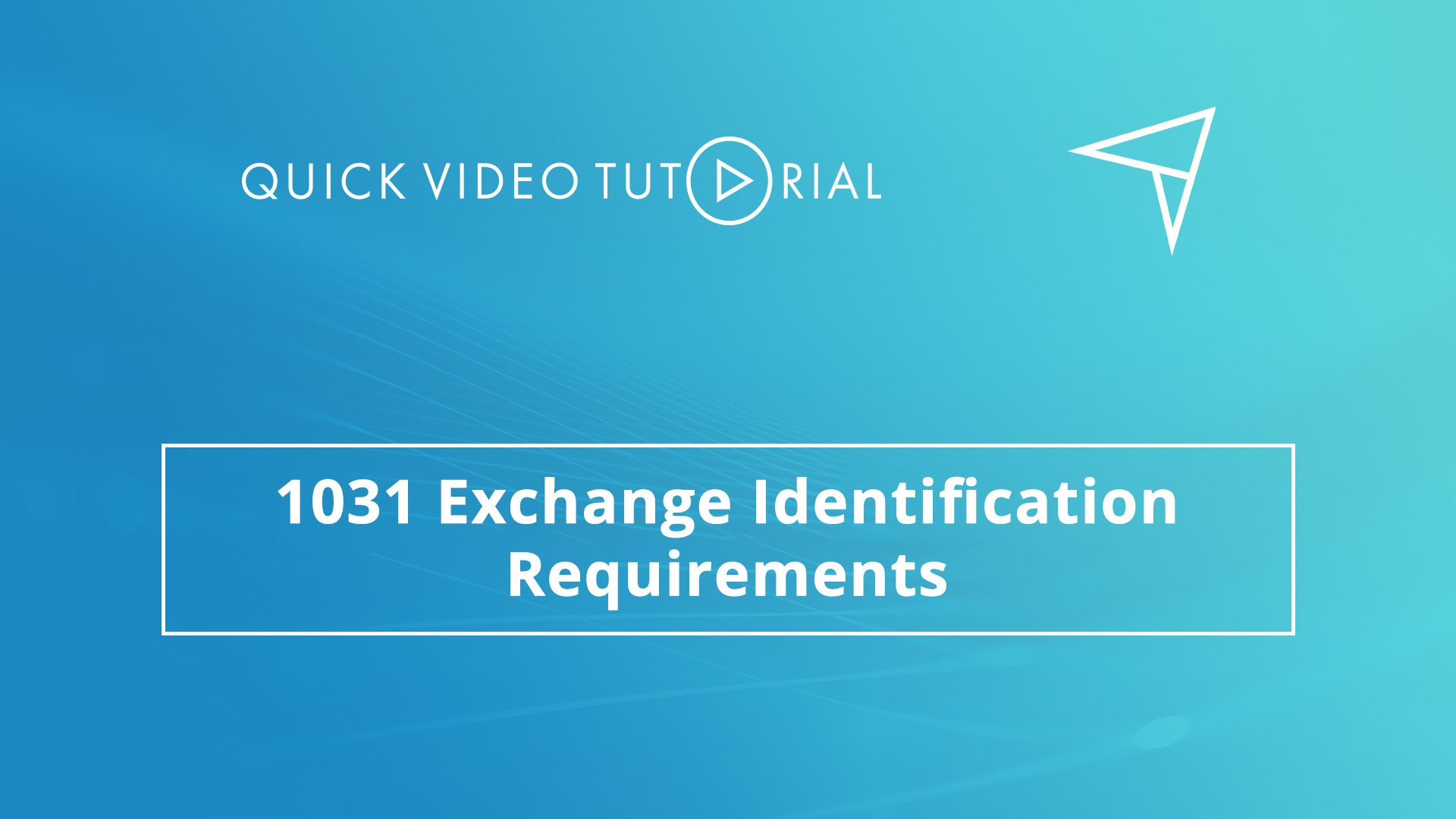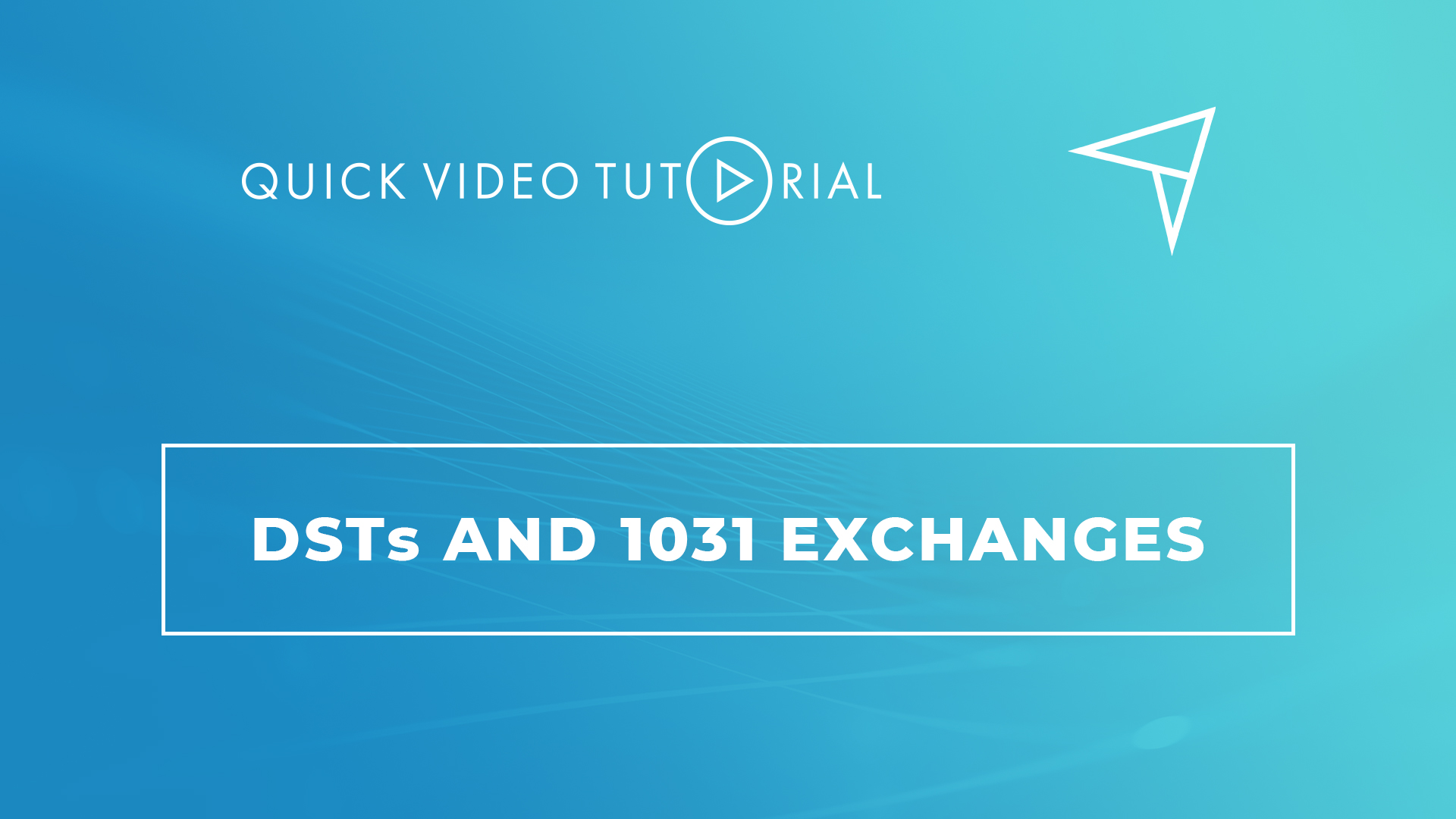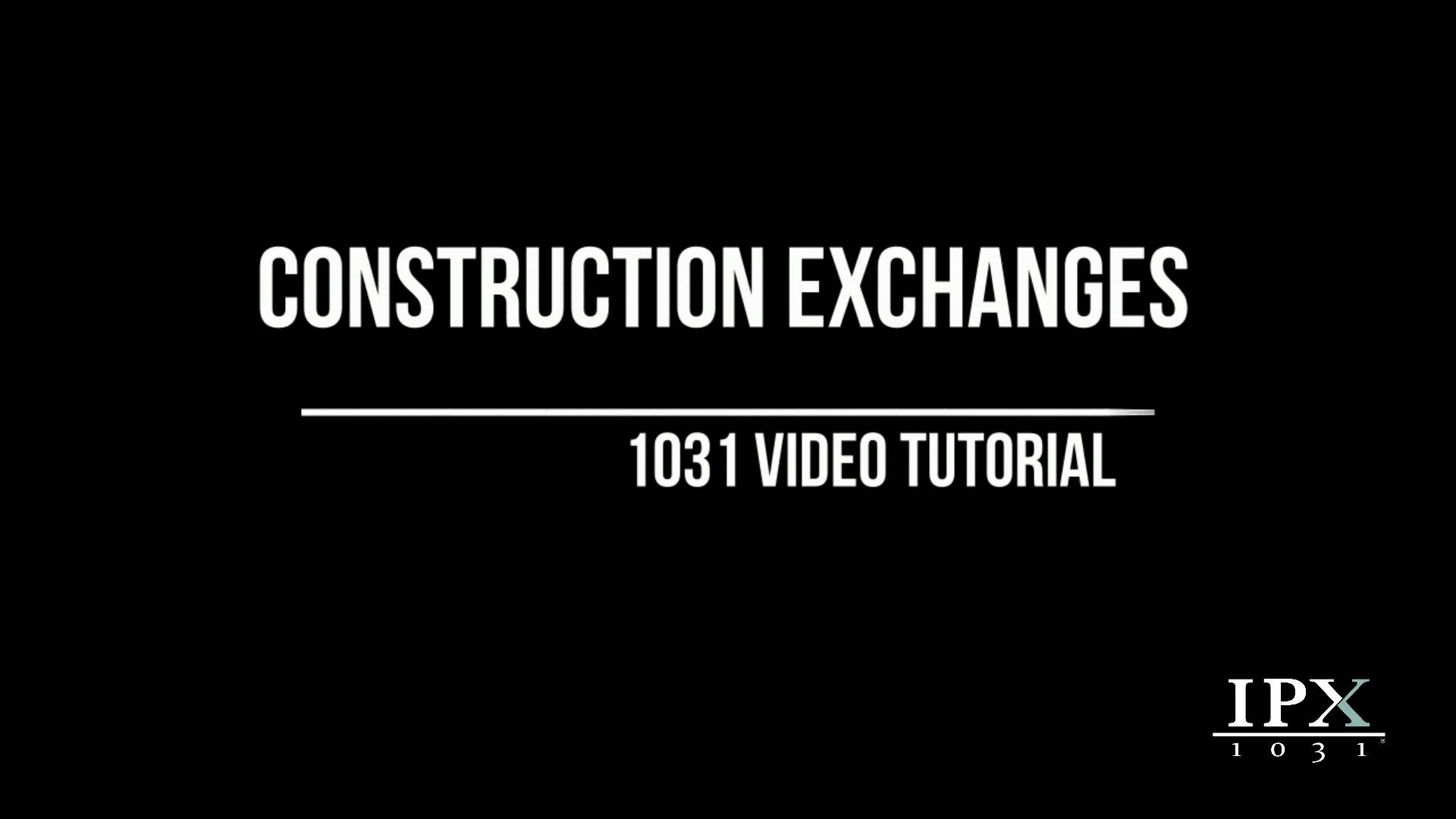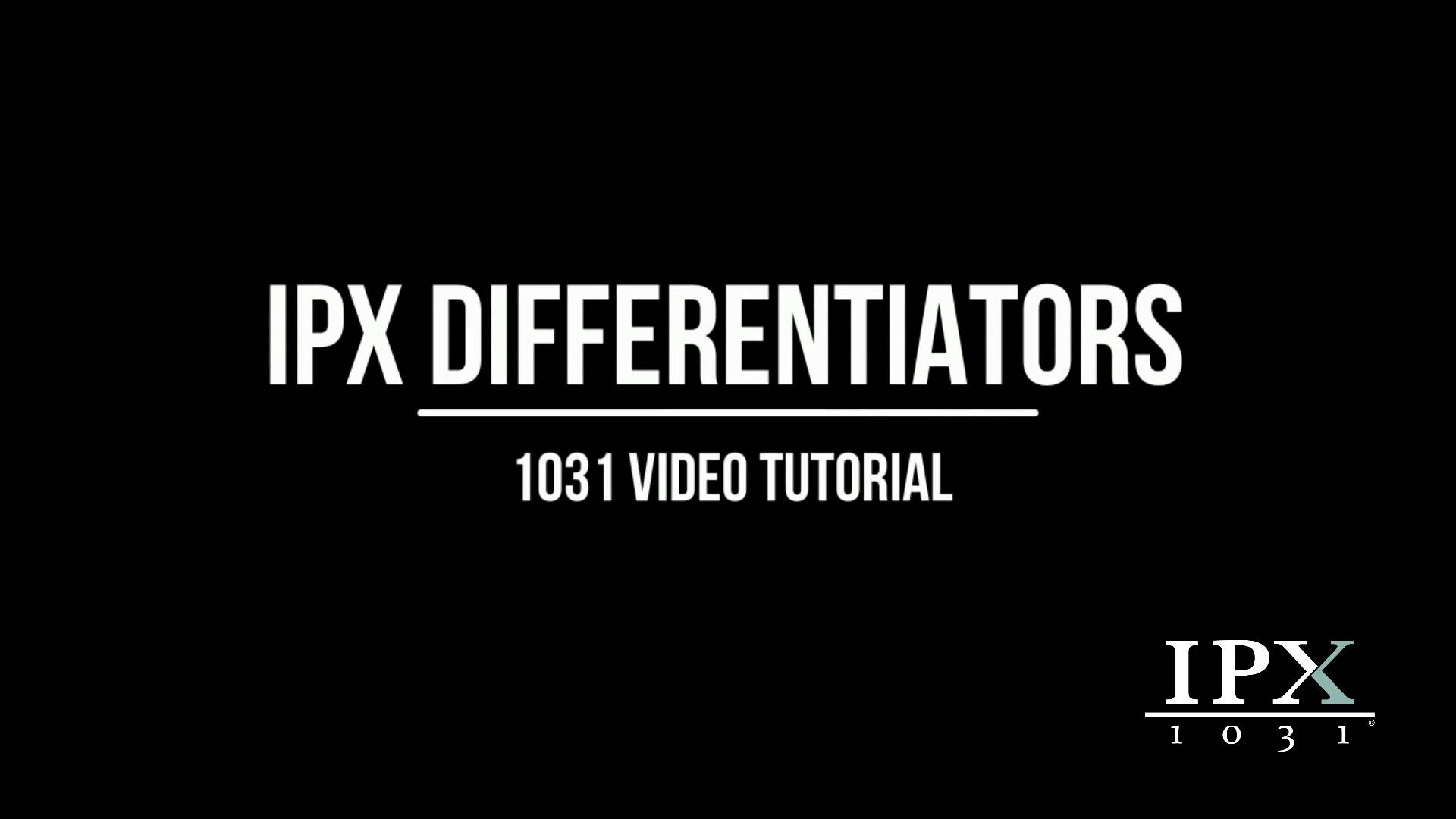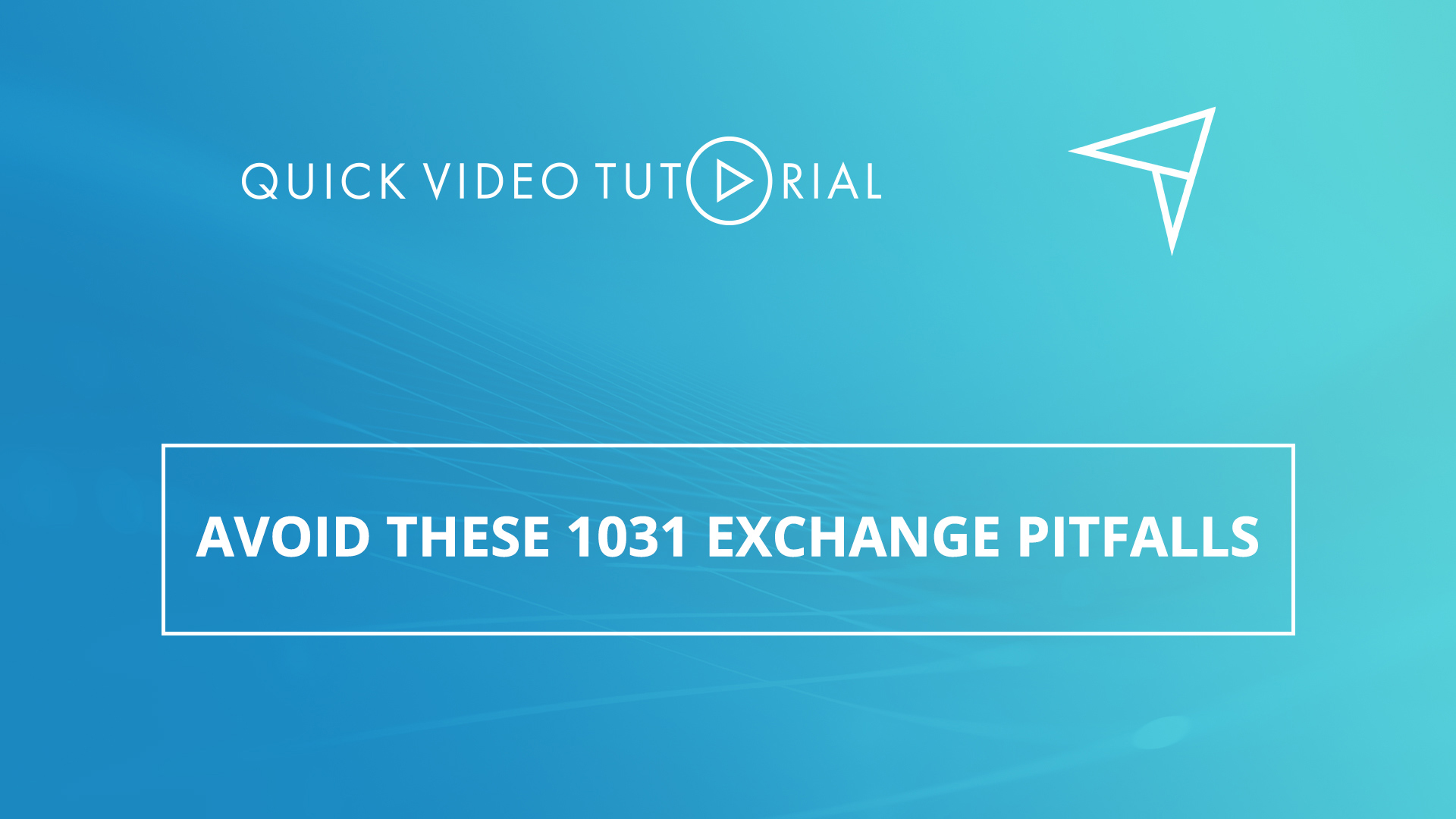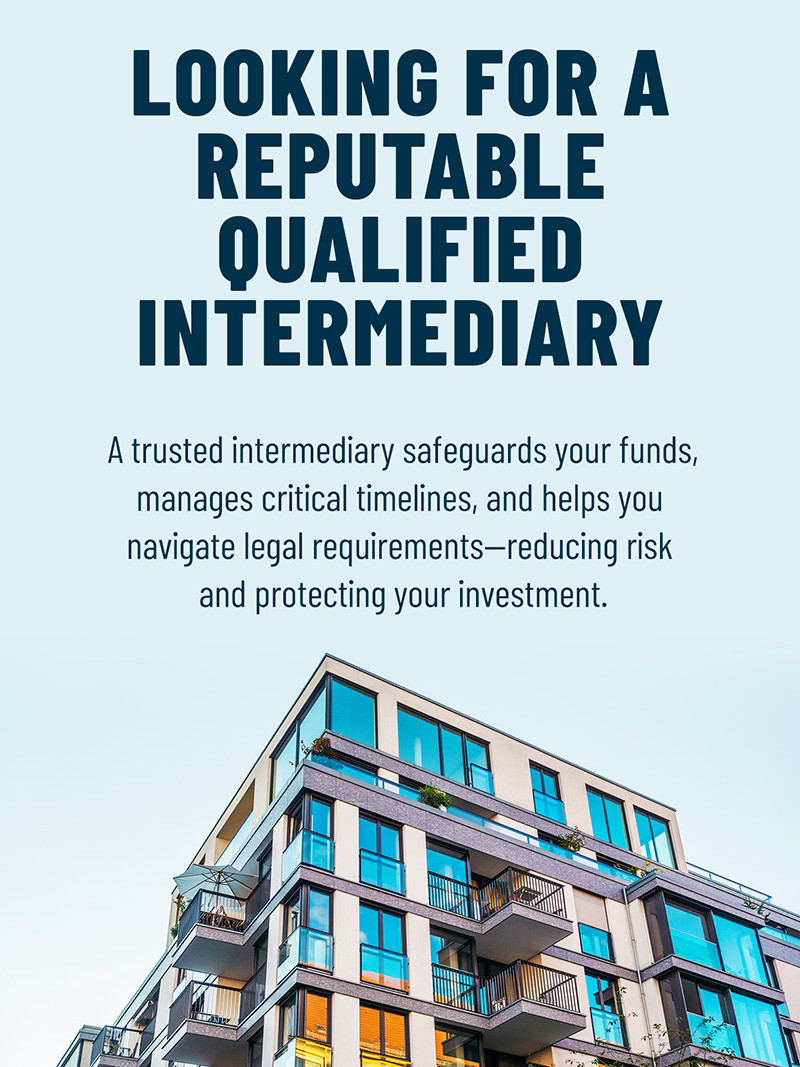DSTs and 1031 Exchanges
In many places across the country, the investment real estate market is heating up and exposing a new issue for certain investors. Namely, in some markets, there are simply more buyers than sellers, causing difficulty finding a suitable replacement property and getting an offer accepted in a property under contract.
This scenario has significant consequences when the prospective buyers are in the midst of completing a tax-deferred exchange, pursuant to internal revenue code, section 1031. And these cases, and by statute, the prospective buyer or exchanger has a 45-day window of eligibility in which defined and identified candidate or target properties and further whatever they end up purchasing for their exchange.
It has to be a property that they’ve previously identified. So if you have an arbitrary 45-day deadline to find and identify the property, you can imagine the stress and angst associated with identifying a property in a superheated market, where it’s difficult to get an offer. Now while a majority of exchangers do find a property to identify and have no trouble completing their exchange within the 180 day time period, a new alternative has emerged in the form of a DST or Delaware Statutory Trust, which is an institutional investment in which the exchange requires an interest in a professionally managed larger investment-grade property, which generates cash flow.
The appeal of these professionally managed investments is essentially the first acquiring a DST qualifies for deferred gain treatment under section 1031. Also, acquiring a DST interest allows an exchange of the immediate ability to select from a portfolio of investment-grade properties available from a particular securities broker-dealer.
In addition, you can diversify into a number of DST interests because they are available in denominations as low as 50 to $100,000.
Also, the properties involved are all professionally managed investment-grade cash flow properties. The DST sponsor can also assign you debt if you need to replace debt in your exchange.
And lastly, for many exchangers, DSTs are a way to transition from a more active role in managing your property into a more passive or coupon cutting type ownership role for the future. Now, since DST investments are sold as a security, they must be acquired through a licensed broker-dealer. Therefore they are only available to accredited investors, meaning that a minimum but a modest net worth requirement is necessary before you can make such a purchase.
And that’s a little bit about DSTs.


